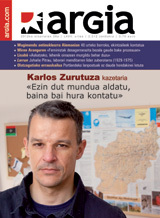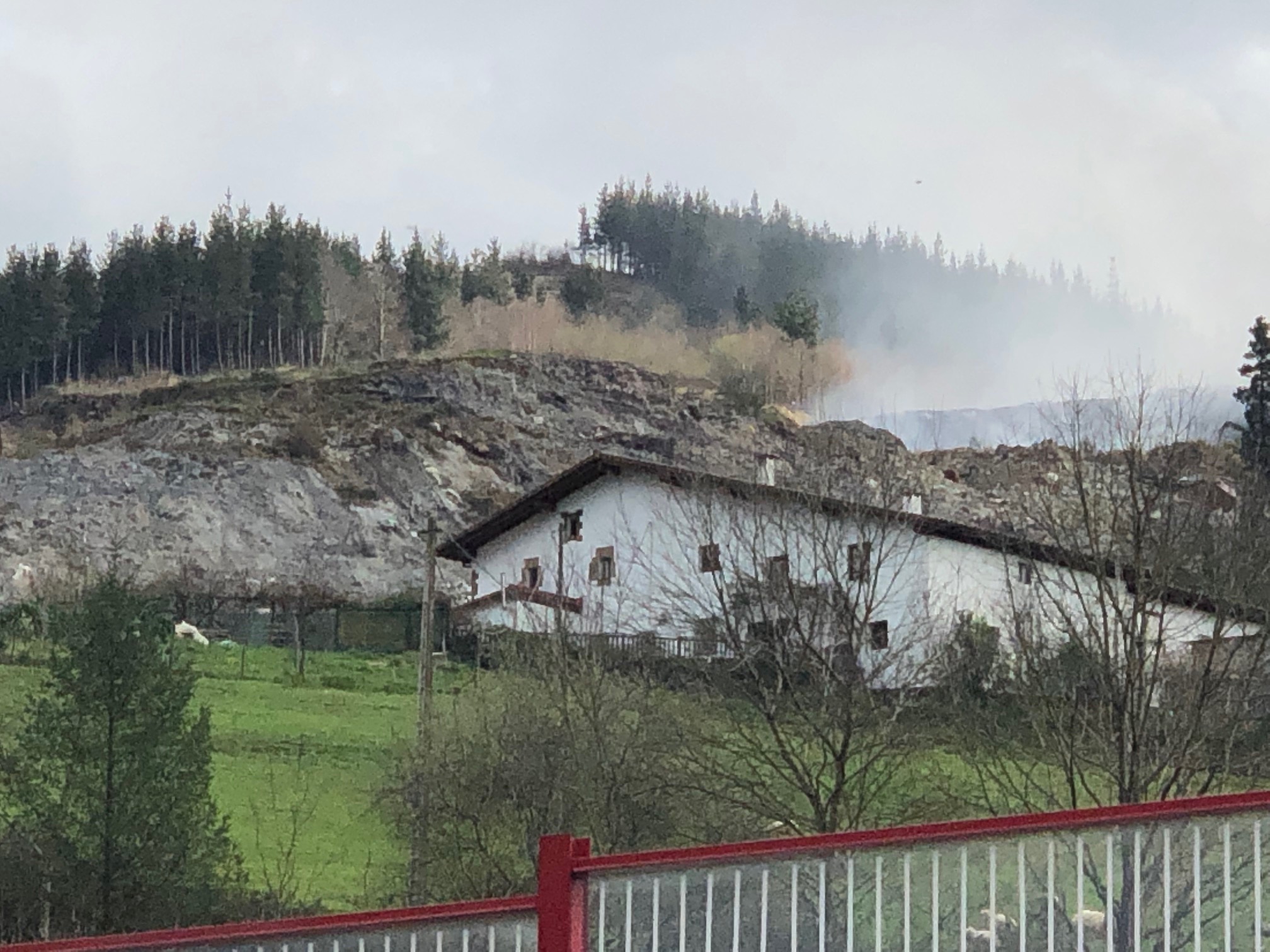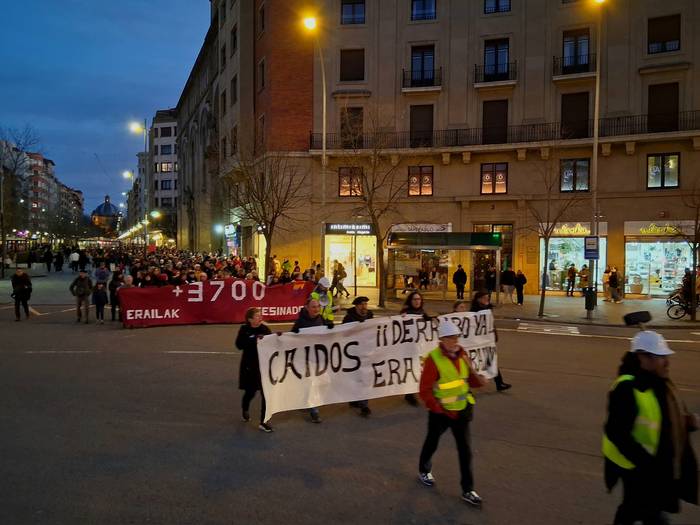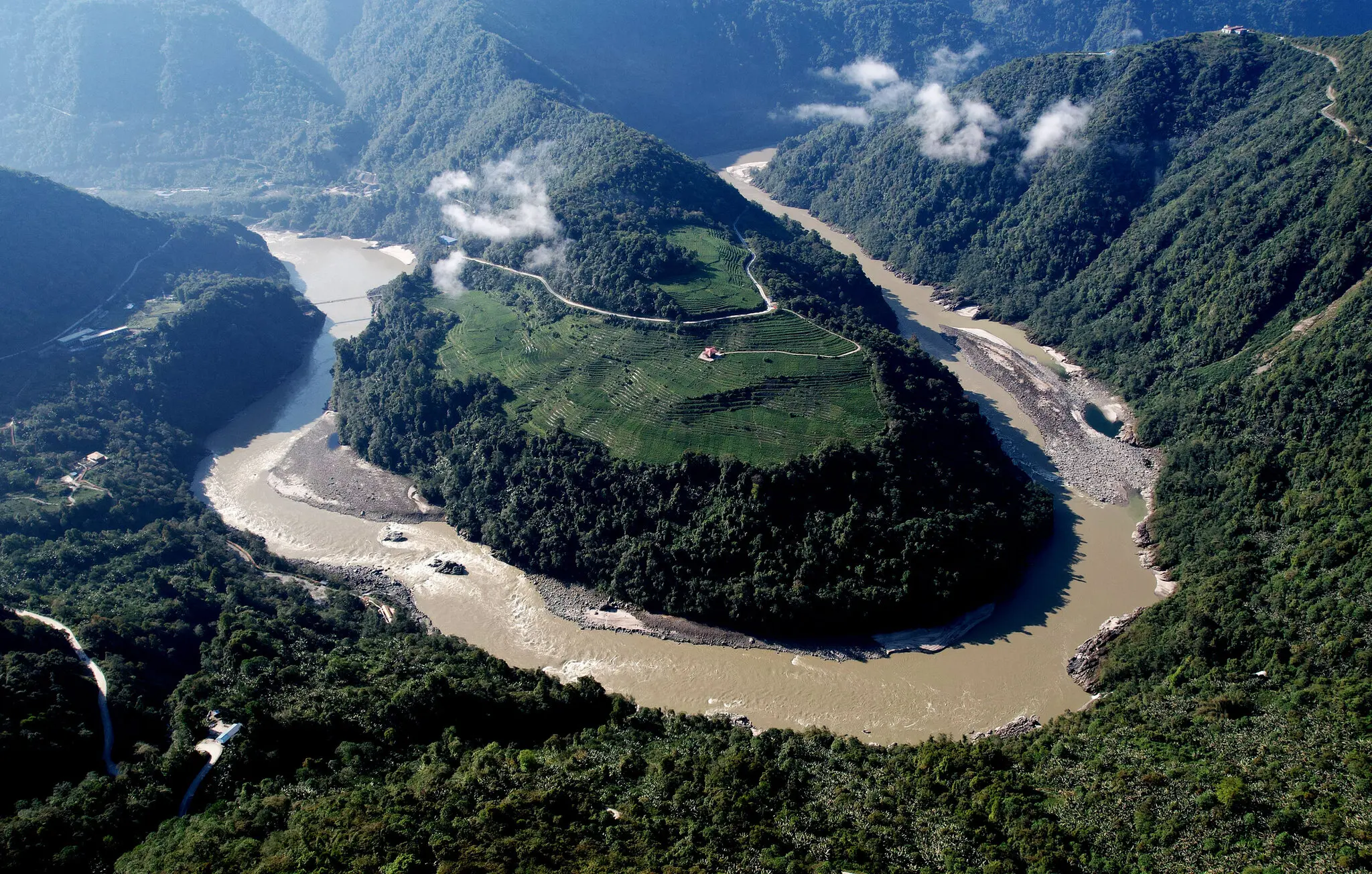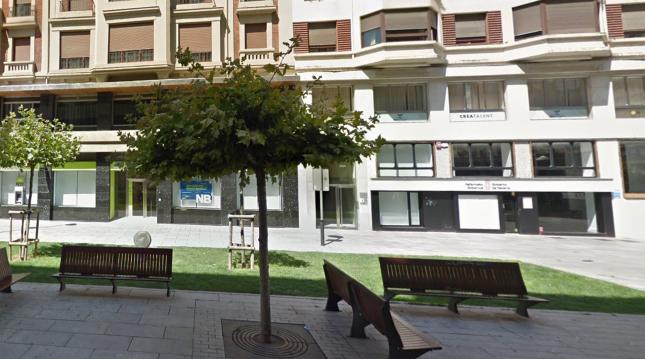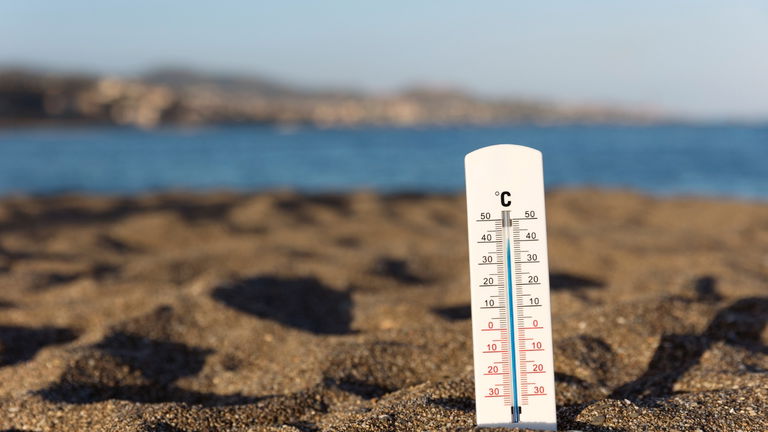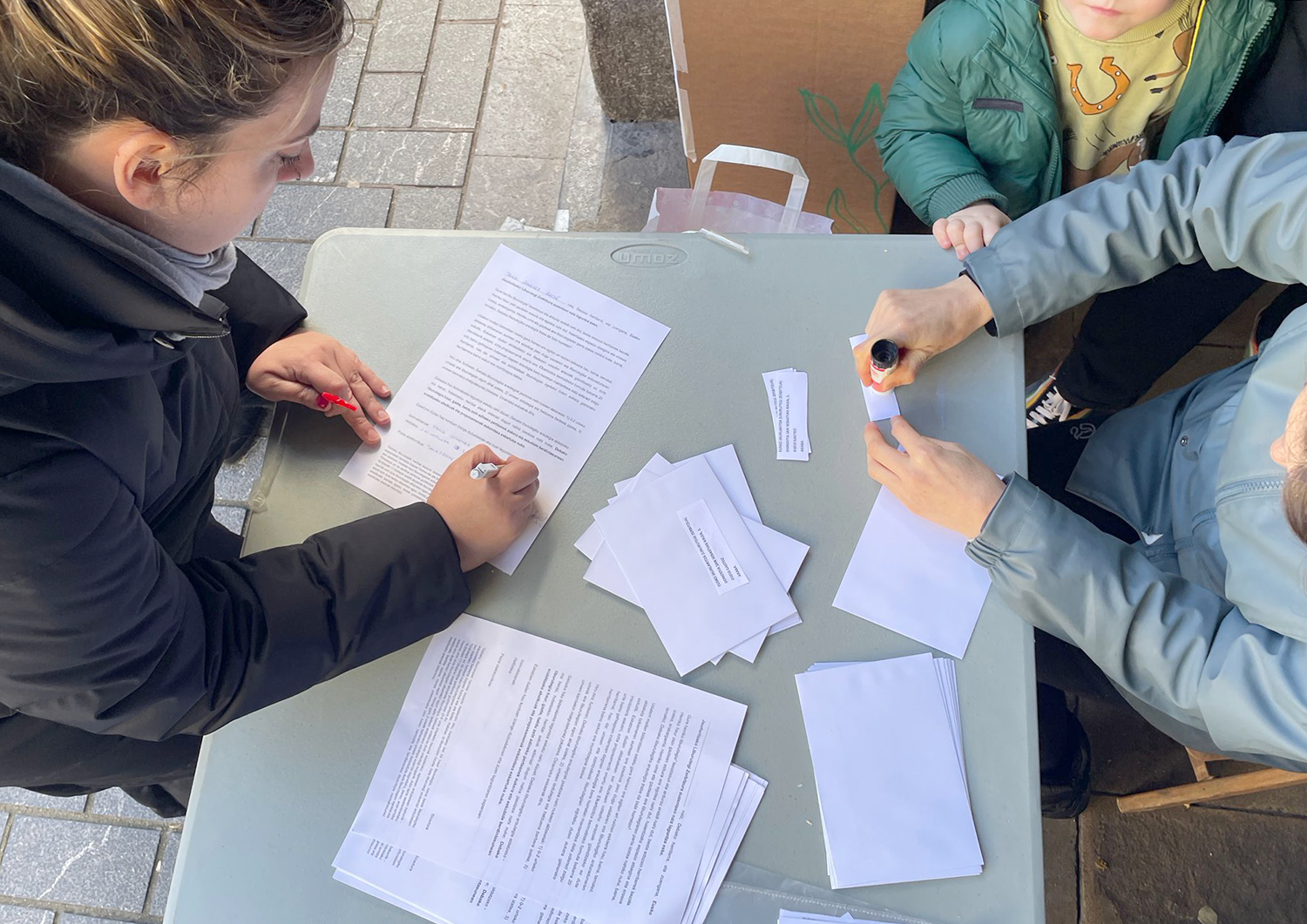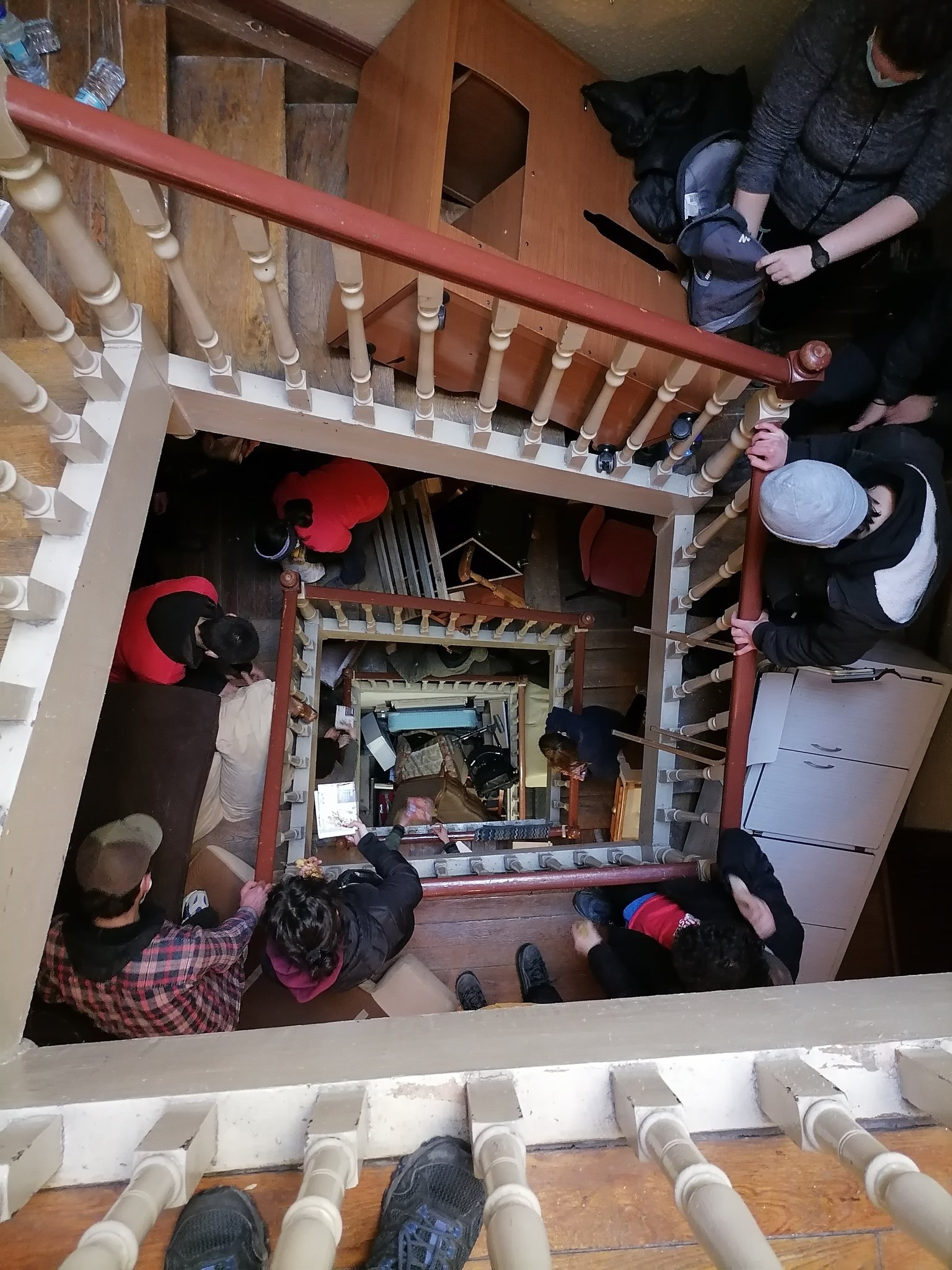A fighting past, a hopeful future
- Following the Fukushima disaster, the fourth country with the highest dependence on nuclear power, Germany, has agreed that this energy should be completely abandoned by 2022. The stories of Germans and Japanese who have gone to Germany bring us closer to the new reality of the future.
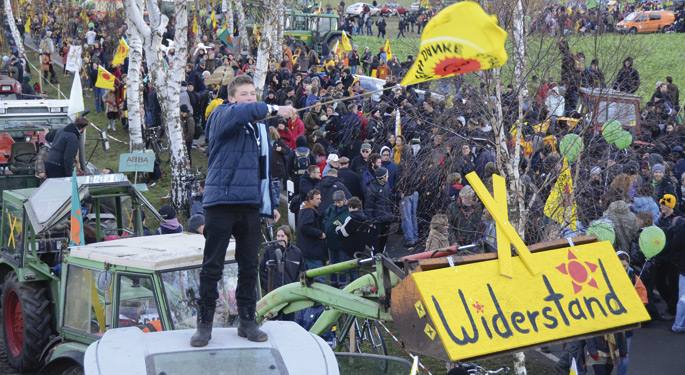
In Japan, the country that suffered two atomic bombs succumbed to the civilian use of this energy, turning cheap technology into a priority national strategy, based on economic growth. In March 2011, the illusion faded with the Fukushima accident, in which four nuclear reactors were uncontrolled. At the other end of the globe, Angela Merkel took the necessary steps to abandon atomic energy, as a few months earlier the Chancellor had made a very controversial decision to extend the life of power plants.
Shimomura family flees from Japan
Fleeing from Tokyo, Miho and Yoshihiro have moved to Berlin with a month-old boy, Shimomu. "I was tired and confused of the views and information of the Japanese," Miho Shimomura explained at a press conference. “I wanted to go far, relax, look to Fukushima and Tokyo from an external point of view.” After the accident, the high level of radiation began to cause water problems in the Tokyo area in Tokyo. Water bottles were drained in stores three or four hours after the Government recommended children not to administer water. Miho bought French water online. The government said nothing about the food, but Miho bought the baby food he had from Germany. “The information was very dark, we couldn’t distinguish the right from the wrong.” The Japanese have proved to be sedentary: few, like the Shimomur, have enrolled in overseas aid programmes. This is a young couple who, if she is willing to start again in Berlin, focuses on taking her child out of danger.
“As a mother, you’re ready to go to the barricades,” insisted Inge Hauri. The 75-year-old woman lives with her husband in Lauffen am Neckar, 50 kilometres from Stuttgart. The children, both retired teachers, are recognized as ecologists in the cradle of the poet Hördelin. When they came to live there in 1967, Inge was pregnant with her first child and, ten kilometers away, they were building the first reactor at the Neckarwestheim nuclear power plant. “After atomic bombs, we also believed that the peaceful use of that energy was a good thing,” he acknowledged. “I found the long fireplace they were building very suspect. We swallowed the flood of information to have our own opinion and we realized the risks of nuclear technology. By the time he wanted to build the second reactor, awareness of this danger was widespread among the population.” The first attempts to paralyse the nuclear plans were carried out legally. The citizens’ first resources were conceived in 1971 around the nuclear power stations already planned in Neckarwestheim, Breisach, Esenshamm and Bonn. The Fukushima power plant in Daiichi was set in motion at that time.
Compared to other European countries, the anti-atomic energy movement that emerged in Germany in the 1970s has been particularly strong and, as time has shown, very continuous. Historian Joahim Radkau may be right to argue that this social movement has been “the largest and richest public discourse in the Federal Republic.” The movement, beyond concrete achievements, has marked a culture of resistance. The anti-nuclear movement in Euskal Herria was also strong and plural, and all kinds of means of protest were used, although the end of the conflict was provoked by the armed actions of ETA.
Taichiro Kajimura and his wife arrived in Berlin in the 1970s after completing their studies in Tokyo. “I had no intention of staying,” said the journalist who has spent half a life in Berlin with humor. “At that time, in West Berlin, I didn’t feel foreign. Here I met the generation of 68, which I met in Japan. Perhaps it was the first global protest movement.” It's about the Occupay movement against today's banks. “But in Japan, because of the systematic propaganda of the United States, the so-called peaceful use of nuclear energy was approved without criticism. The lie we have lived so far has sunk with Fukushima.”
In 1975, Inge became fully involved in Socialist Party Hauri. “In the Neckarwestheim, the only one who was not admitted – he says furious – of the 27,000 resources, demonstrations were made, the popular initiative was created… but the resistance was not as successful as in Wyhl.” Wyhl is an example of movement: protests by peasants and university students were strong, supportive and peaceful. In 1975, nearly 28,000 people occupied the building site and almost nine months later the last occupations occurred. The legal conflict that lasted ten years and the construction of the power plant never ended. However, the struggles were much more violent, as in Borksdorf. He declared defeat for many. But the movement has had victories over and over again. Construction of the Wackersdorf reprocessing plant was avoided. The conflict was no longer local. Some 100,000 people concentrated on the demonstrations taking place in several cities.
It should be noted that the majority of the population opposed to civilian use was also against military use and that the peace movement was reactivated between 1979-1983. “At that time it was known that the Americans had spread atomic missiles called Pershing in German military bases. Our children went to demonstrations against them and I with them,” says Hauri. In the 1980s, the masses moved against the rivalry between the blocks and the strategy of fear. In 1980, The Greens emerged in part from the anti-nuclear movement.
Rejection of Chernobyl mushrooms
And in 1986, Txernobyl. Since then, the Kajimur have not bought mushrooms from Poland. In Japan, on the contrary, the radioactive cloud went far. Miho Shimomura was only one year old. “It can be said that Germany’s reaction was hysterical,” Hauri says. The lettuce and the milk powder were destroyed, the children were not allowed to play in the sandboxes... There was nothing like his side, in France. “But the information we had told us we were right to worry. And the feeling was that it wasn’t all the truth that they told us.” Information was even more limited in East Germany. “We continued to eat unworrying mushrooms – Herbert Zühlk has been a secular comparison – in a system that did not support critical movements, not even the voices against nuclear power had advertising.” East Germany was the first power plant to
power the electricity grid in 1966. They dreamed of building twenty power plants, but only a second was made, that of Lubmin, near Greifswalde. Zühlke was the reactor operator of this plant from 1975 onwards, a year after the wall collapsed and the closure of East German power plants: they were not necessary and did not meet Western safety standards.
In the 1990s, the main theme was unification and the activity of the anti-nuclear movement fell greatly. The meeting point has been in Gorleb in difficult times: since this place was definitively established as a possible warehouse – without rest for 35 years – the issue of radioactive waste has become the key to the debate. The aim of such a warehouse is to “safely” isolate radioactive waste from the biosphere for a million years. While analysing its suitability in Gorlebe, it is used as a temporary storage facility. So far, the waste is transported by rail in the wagons called Castor. The latest transport, that of November 2011, has been the slowest and most expensive so far, and also the politically hardest: The train departed from Le Havre in France and took over 125 hours to reach the train station. The demonstrators assumed that the postponement of the demonstration was a success. “According to geological results, Gorleben is not the right place,” says Kajimura. During these 35 years he has participated in the innumerable protests in Gorleben and has gone on vacation with his family.
Nina Hensel, 23, with whom she shares a generation with Kajimura, felt like on vacation when she came to one of the camps near Gorleb to participate in the latest blockades. Though he turned his eyes closed, Hensel is not one of those who harass himself. “We decided to join in the actions of removing stones from the railway, I can’t put my ass twenty hours on the track.” He had to live something he only knew about the action movies. Her voice remembers without trembling the details: “You don’t even know where the blood comes from. The boyfriend's voice begged the police to stop. And out of fear, they would keep pasting us to death. It lasted three or four minutes. We were taken to jail in a van with the handcuffs in our hands and our head covered. It is paradoxical that I am accused of violence, because I believe that violence goes against our objectives, but I think it is legitimate for us to protest by causing material damage.”
“The problem of waste, which Herbert Zühlke has become critical, is a matter that all governments have wanted to delay. We're where we were 50 years ago." The Government has promised that a new warehouse will be sought in Gorleben, but without suspending the prospecting work of the Gorleben nuclear power plant. Zühlk is aware of the work of introducing the nuclear fuel of four reactors in Castor and moving the Lubmin plant to the regular temporary storage facility. He has spent ten years in these tasks and until his retirement he will continue with the demolition works of the plant.
The recovery of movement
The movement, which seemed to be in a batter, rose again in 2010. “The culture of mass demonstrations revived when Merkel set out his decision to extend the life of power plants,” Hauri said. In the past, in 2000, the red-white coalition and the atomic industry had agreed to a progressive shutdown of this type of energy. “But Merkel comes and says no, we’re not going to do it. And today we would be there if the Fukushima catastrophe had not occurred.” Inge Hauri himself returned to the protests when Merkel postponed the deadlines, and met friends between 70 and 80 years old. “Then I started attending the concentrations against the Stuttgart station, driven by the commitment of the son and his wife who live there.”
The whole of the Federal Republic was warned against the new railway station in Stuttgart. In Stuttgart everything came across as nobody had expected. There were elections in March, and positions about the station defined the campaign. You could have believed that the Greens would win. Spectacular images came from Fukushima, it was Friday. On Monday, Merkel announced a change of direction in its energy policy, with the immediate closure of seven power plants and the review of all of them in three months. An uncredible manoeuvre in Baden-Württemberg to improve the chances of your party? Today, Winfried Kretschmann is the first President of the Greens in a Land, where, for 58 years, Christian democracy has been present in the Conservative Land.
The Kajimur, face to face, told Kretschman: “In Japan you are Germany’s second best known politician.” In fact, the Japanese are following Germany's footsteps carefully. “I am old to return to Japan. There is a lot to be done, but what I can do is to transfer the information from Germany. It is my duty. I hate the Japanese atomic lobby,” says Kajimura. Their biggest concern is that another accident could occur. None of the plants that have been reviewed in Japan have been authorised to continue and only two of the 54 reactors that were reviewed in February are expected to work. “If in the next ten years Germany really kills the atomic industry, it’s going to be an energy revolution, globally,” Kajimura says with hope. Eight plants have been shut down in Germany and the remaining nuclear power plants have been decided to close by 2022.
A green future?
The children are suspicious: “They want us to believe that change of direction is not possible. That the pipes will not be prepared to transport the wind energy, that the solar energy that was wanted to be purchased from the countries of the Maghreb, in political flames, is not safe ... They are making great propaganda against.” For an energy revolution to take place, Germany will need more than just a new windmill and a new pipeline. It will call for a radical and green change in energy-generating and energy-using infrastructures, including cars, buildings and factories, among others. No one forgets that they have Poland aside to start with nuclear energy, on the other hand France, full of nuclear power stations. However, above all doubt, idealism prevails in the words of Hauri: “I am absolutely convinced that, while doing well in Germany, the rest will follow you.”
The Shimomur are starting a new life in Berlin: they have gained a place in daycare, they have gathered documents demonstrating income and function, they have started a German course... The Mistletoe did not see in his face the slightest hint of despair: “I never thought we would celebrate Tora’s first birthday abroad. Maybe it's easier than I thought." It speaks of its new life, but it can also be a reflection of the new times that our planet can live.
The harsh verdict against Proces came out in October 2019 and that set Barcelona on fire. In this context, in the Spanish State, the following sentence was read in the right-wing press: “For the good of Spain, Barcelona should be bombed every 50 years.” It was the phrase of... [+]
The year 2025 will lead to a general policy of establishing shorter working weeks, bringing low costs for new hires for companies and an effective direction of change in labour relations.
With the aim of complying with the Spanish government agreement, the reform to shorten the... [+]
Iñigo Cabacas Herri Harmaila taldea eta Athleticen arteko harremana nahaspilatuta dago azkenaldian. Iñigo Cabacas Herri Harmailako Iñigorekin hitz egiteko aukera izan dugu astelehenean.









